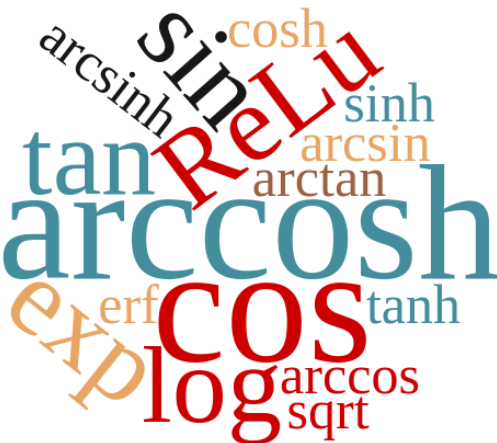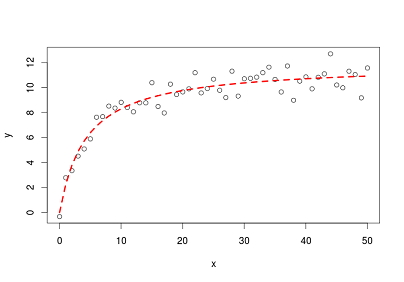C++ Documentation
Kernels
Kernels, (also called non-linearities in the ANN literature) describe the fundamental computational units of a CGP.
Things like addition, multiplication, trigonomoetric functions are all kernels. The templated class dcgp::kernel allow
the user the definition of their own kernels able to operate on the choosen type.
The most popular kernels are already coded and shipped with dcgpy. A python list containing multiple kernels can be easily
instantiated via the dcgp::kernel_set.
Types of dCGPs
Several types of Cartesian Genetic Program are provided in dcgpy. Since a dCGP is some kind of a mathematical expression, we use the term expression to name the related, different, classes.
We essentially provide three types of CGPs:
expression: this is the original CGP as introduced by Miller in 1999.
expression_weighted: this adds to the original CGP formulation weights on each of the graph edges. (original with dCGP - 2016)
expression_ann: this represents an Artificial Neural Network inclusive of biases and weights, via a CGP and allows to learn the model parameters using backproagation. (original with dCGP - 2018)
Each of the above CGPs can operate over different numerical types, hence the corresponding classes are templated.
For example a dcgp::expression can operate over doubles (T = double), in which case the
result of evaluating the inner computational graph is a double, but also on a gdual (T = audi::gdual <Cf>)
with Cf = double, in which case, the result of evaluating the inner computational graph will
be a audi::gdual <Cf> and hence it will contain all the program derivatives
up to the chosen order and is thus referred to as a dCGP.
Another important type some CGPs can operate upon is the audi::gdual <Cf> with Cf = vectorized_double.
This type offers order of magnitude speed ups whenever a CGP needs derivatives and to be evaluated over several points
(such as in the case of a loss evaluation).
Symbolic Regression
Mathematically, a symbolic regression problem is a global optimization problem. In order to facilitate its solution,
a number of classes have been designed to interface a dcgp::expression to the optimisation suite pygmo.
In particular we provide UDPs (in pagmo’s jargon user defined problems) that can be used to build
pagmo::problem objects (representing symbolic regression problems) and UDAs
(in pagmo’s jargon user defined algorithms) that can be used to build pagmo::algorithm objects.

